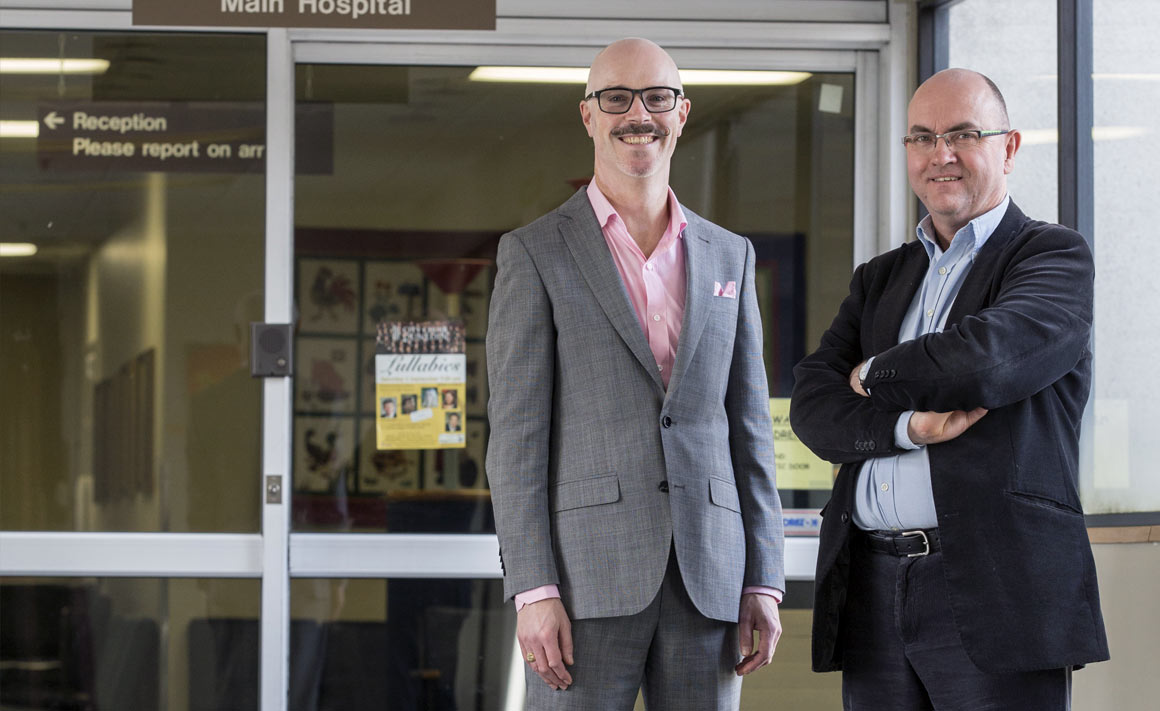
Better integration is one of the key issues facing health care globally, but the challenge is how to bring health professionals, researchers and the community together.
Now the University of Otago is in a unique position to drive health systems integration in New Zealand, having recently created the Centre for Health Systems and Technology (CHeST).
CHeST, which builds on the success of its predecessor (Centre for Health Systems, Dunedin School of Medicine), is a research hub linking academic, community, clinical and policy expertise from across New Zealand and internationally.
The interdisciplinary platform aims to connect people with health systems interests in ways that have not been done before, breaking down silos and building one interdisciplinary research group.
Its research programme plans to improve health research delivery and develop research and quality improvement capacity for the health system, initially in the south. This approach will put the University at the forefront of health systems and technology research in Australasia.
CHeST has five research themes:
- Health care and health service delivery
- Health system architecture, management and performance
- Health quality, safety and community engagement
- Health workforce
- Health technology.
Activities will include research symposiums, workshops, research projects and developing a future research agenda that draws in the five themes.
One of the current research projects is a survey of every registered health-care professional working in New Zealand's DHBs to gauge current organisational practices that support clinical leadership for quality and patient safety improvement.
Better organisational systems
Globally, health systems have developed in an ad hoc way.
CHeST Co-Director Pro-Vice-Chancellor of Commerce Professor Robin Gauld says there is an urgent universal need for new and innovative models of care that are more efficient and cost-effective and, at the same time, offer a better care experience.
“The challenge of our time, therefore, is creating workable systems that improve performance across the entire health-care environment.”
Effective processes that ensure seamless care through hospital, primary care and into the community have considerable potential to generate greater economic and health benefits for New Zealand, he says.
“To realise this, we need a research centre with the vision, interdisciplinary expertise and partnerships to objectively drive health system integration. Our strengths lie in effective collaborations across research, policy and practice, allowing us to focus on the applied end of health policy and system improvement.”
Gauld says organisational research and better use of technology both have an increasingly important role in designing better systems and frameworks.
“With Health Sciences and Commerce involvement, CHeST represents a critical cross-campus partnership. Commerce researchers are already studying organisational best practice; we have innovative information technology expertise, and can draw from the existing strong relationship between the Otago Medical School, Dunedin Hospital, and local health and administration professionals.
Health delivery
This dovetails into the New Zealand Health Research Strategy 2017-27, which recognises the importance of health delivery and suggests increasing health systems and services research.
One of this strategy's research streams is to build and strengthen pathways for translating research findings into policy and practice for health and disability service delivery outcomes over the short-to-medium term.
CHeST Co-Director Professor Tim Stokes (Head of General Practice and Rural Health at the Dunedin School of Medicine and a Dunedin GP) explains that health-care delivery research is as important as understanding the cause of a particular clinical condition or disease.
Using diabetes as an example, Stokes explains that we know exercise delivered intensively to volunteers with diabetes “works”, but what we don't know is if delivering an exercise programme in primary health care to patients with both diabetes and other chronic conditions improves their diabetes “in the real world”.
This is a question Stokes is helping answer on a Health Research Council-funded project led by CHeST colleague Professor Leigh Hale (School of Physiotherapy).
“Researching what works in routine clinical settings relies on strong engagement between patients, the community, researchers, health professionals and administrators.”
A current CHeST health delivery project led by Stokes, funded by the Health Research Council, is delivering better care for people with severe Chronic Obstructive Pulmonary Disease (COPD) in the southern region.
The study – a University partnership with the Southern District Health Board – involves interviewing patients, providers and planners as well as reviewing health-care utilisation data to understand the barriers and enablers to providing high quality, person-centered and integrated care for people with severe COPD.
From this, evidence-based recommendations will be developed for clinical practice and care delivery.
“It's a fresh look at the whole New Zealand system of care for this important chronic disease, one that could have a significant impact on improving an individual patient's COPD management,” Stokes says.
Funding
- Health Research Council
- University of Otago (Research Theme funding)
- Health Quality and Safety Commission
- Counties Manukau District Health Board
- Accident Compensation Commission
- World Health Organisation Asia-Pacific Observatory on Health Systems and Policies
- London School of Economics
- Commonwealth Fund of New York